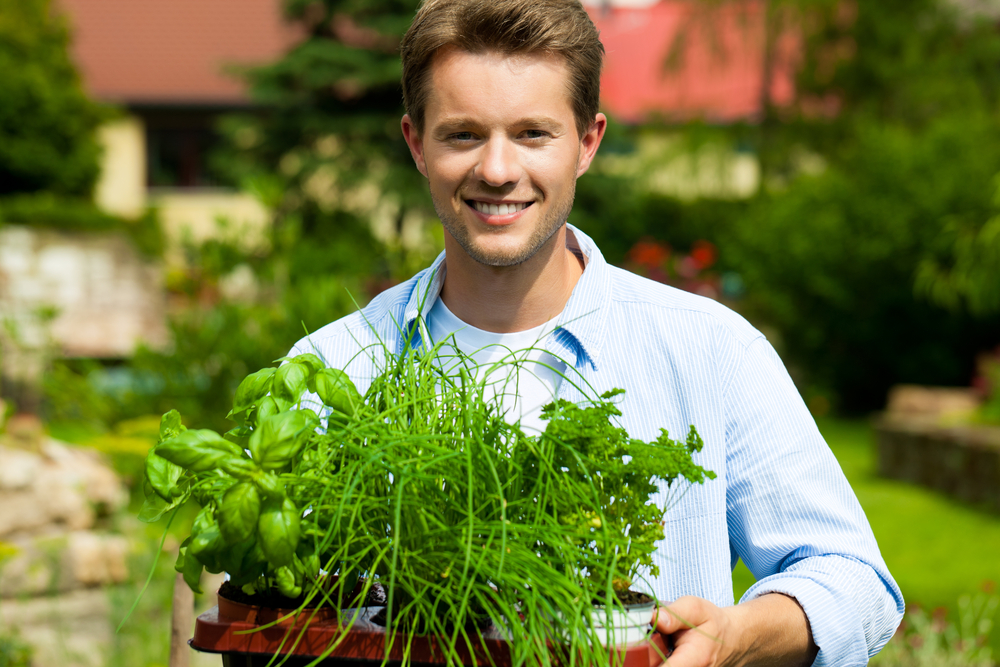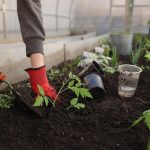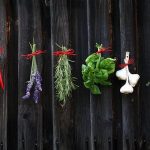In today’s fast-paced world, where stress is rampant and health concerns are widespread, many people are turning to natural remedies to support their well-being. Herbs have been used for centuries in traditional medicine systems worldwide, offering a holistic approach to health and healing. But with the rising popularity of herbalism, it’s becoming increasingly important to understand where our herbs come from and how we can cultivate them sustainably. One solution is to grow your own medicinal herbs at home.
Cultivating your own medicinal herbs not only provides easy access to fresh, potent ingredients but also fosters a deeper connection to nature and self-sufficiency. Whether you have a sprawling garden or a small balcony, there are plenty of herbs that are easy to grow and can thrive in various conditions.
Let’s explore some of these herbs and their wellness benefits:
- Lavender: Known for its calming properties, lavender is a versatile herb that can be used to alleviate stress, promote relaxation, and improve sleep quality. Lavender is relatively low-maintenance and can be grown in pots or directly in the ground, preferring well-drained soil and plenty of sunlight.
- Peppermint: With its refreshing aroma and cooling effect, peppermint is a popular herb used to aid digestion, relieve headaches, and soothe sore muscles. Peppermint is a fast-growing herb that spreads quickly, so it’s best to plant it in a container to prevent it from taking over your garden.
- Chamomile: Chamomile is well-known for its calming and anti-inflammatory properties, making it a valuable herb for promoting relaxation and supporting digestive health. Chamomile thrives in full sun and well-drained soil, making it an ideal addition to herb gardens or containers.
- Echinacea: Commonly used to boost the immune system and fight off colds and flu, echinacea is a hardy herb that can withstand a variety of growing conditions. Echinacea prefers full sun but can tolerate partial shade and requires well-drained soil. Harvest the flowers and roots for medicinal use.
- Lemon Balm: As its name suggests, lemon balm has a delightful lemony scent and is often used to improve mood, reduce anxiety, and support cognitive function. Lemon balm is easy to grow and can thrive in both sun and shade, making it a versatile addition to any herb garden.
- Calendula: Also known as pot marigold, calendula is prized for its vibrant orange flowers and medicinal properties. Calendula is rich in antioxidants and has anti-inflammatory, antifungal, and antimicrobial properties, making it useful for wound healing and skin care. Calendula prefers full sun and well-drained soil.
- Holy Basil (Tulsi): Revered in Ayurvedic medicine, holy basil is considered a sacred plant with powerful adaptogenic properties. Holy basil is used to reduce stress, promote mental clarity, and support the immune system. This herb requires warm temperatures and plenty of sunlight to thrive.
When growing medicinal herbs, it’s essential to use organic practices and avoid pesticides and synthetic fertilizers to ensure the purity and potency of your herbs. Harvest herbs in the morning when their essential oils are most concentrated, and dry them thoroughly before storing or using them for teas, tinctures, or topical preparations.
In addition to their health benefits, cultivating medicinal herbs can also enhance the beauty of your garden and attract beneficial insects such as bees and butterflies. By growing your own medicine, you not only take control of your health but also contribute to the sustainability of our planet and reconnect with nature’s healing power. So roll up your sleeves, get your hands dirty, and start growing your own herbal pharmacy today!
FAQ
Q: What are the easiest herbs to grow for beginners? A: Some of the easiest herbs to grow for beginners include basil, mint, parsley, chives, and oregano. These herbs are relatively low-maintenance and can thrive in various growing conditions.
Q: Do herbs need a lot of sunlight to grow? A: Most herbs prefer full sun, which typically means at least six hours of direct sunlight per day. However, some herbs, like mint and parsley, can tolerate partial shade, while others, such as lavender and rosemary, thrive in full sun.
Q: Can I grow herbs indoors? A: Yes, many herbs can be grown indoors as long as they receive sufficient sunlight. Choose a sunny windowsill or use grow lights to provide adequate light for indoor herbs. Herbs like basil, chives, parsley, and mint are well-suited for indoor cultivation.
Q: How often should I water my herbs? A: The watering frequency for herbs depends on factors such as the type of herb, the growing conditions, and the climate. In general, herbs prefer well-drained soil, so water them when the top inch of soil feels dry to the touch. Avoid overwatering, as this can lead to root rot.
Q: Do herbs need fertilizer? A: Herbs typically don’t require a lot of fertilizer, especially if they’re grown in nutrient-rich soil. However, you can use a balanced organic fertilizer or compost to provide essential nutrients periodically, especially if you notice slow growth or nutrient deficiencies.
Q: How do I harvest herbs? A: Herbs can be harvested by pinching or cutting the stems just above a set of leaves. Harvest herbs in the morning when their essential oils are most concentrated for the best flavor and potency. Avoid harvesting more than one-third of the plant at a time to allow for regrowth.
Q: How do I preserve herbs for later use? A: Herbs can be preserved by drying, freezing, or preserving in oil or vinegar. To dry herbs, hang them in a well-ventilated area away from direct sunlight until they are completely dry, then store them in an airtight container. Alternatively, you can freeze herbs by chopping them and placing them in ice cube trays with water or oil.
Q: Are there any pests or diseases that affect herbs? A: Yes, herbs can be susceptible to pests such as aphids, spider mites, and whiteflies, as well as diseases like powdery mildew and fungal infections. To prevent pest and disease problems, practice good garden hygiene, avoid overcrowding plants, and monitor your herbs regularly for signs of trouble.
Q: Can I grow herbs year-round? A: Some herbs, such as rosemary and thyme, are perennial and can be grown year-round in mild climates. Others, like basil and cilantro, are annuals that will die back in cold weather but can be grown indoors or replanted each year. Consider your climate and growing conditions when selecting herbs for year-round cultivation.
Q: Can I grow herbs in containers? A: Yes, many herbs are well-suited for container gardening, making them ideal for balconies, patios, or small gardens. Choose containers with drainage holes and use a well-draining potting mix. Be sure to water container-grown herbs more frequently than those planted in the ground, as they can dry out faster.
Sources:
https://www.mountsinai.org/health-library/herb/peppermint#:~:text=Peppermint%20(Mentha%20piperita)%2C%20a,and%20anxiety%20associated%20with%20depression.
https://www.webmd.com/diet/health-benefits-echinacea
https://extension.psu.edu/lets-preserve-drying-herbs#:~:text=Herbs%20will%20have%20more%20of,of%20stem%20for%20later%20growth.









